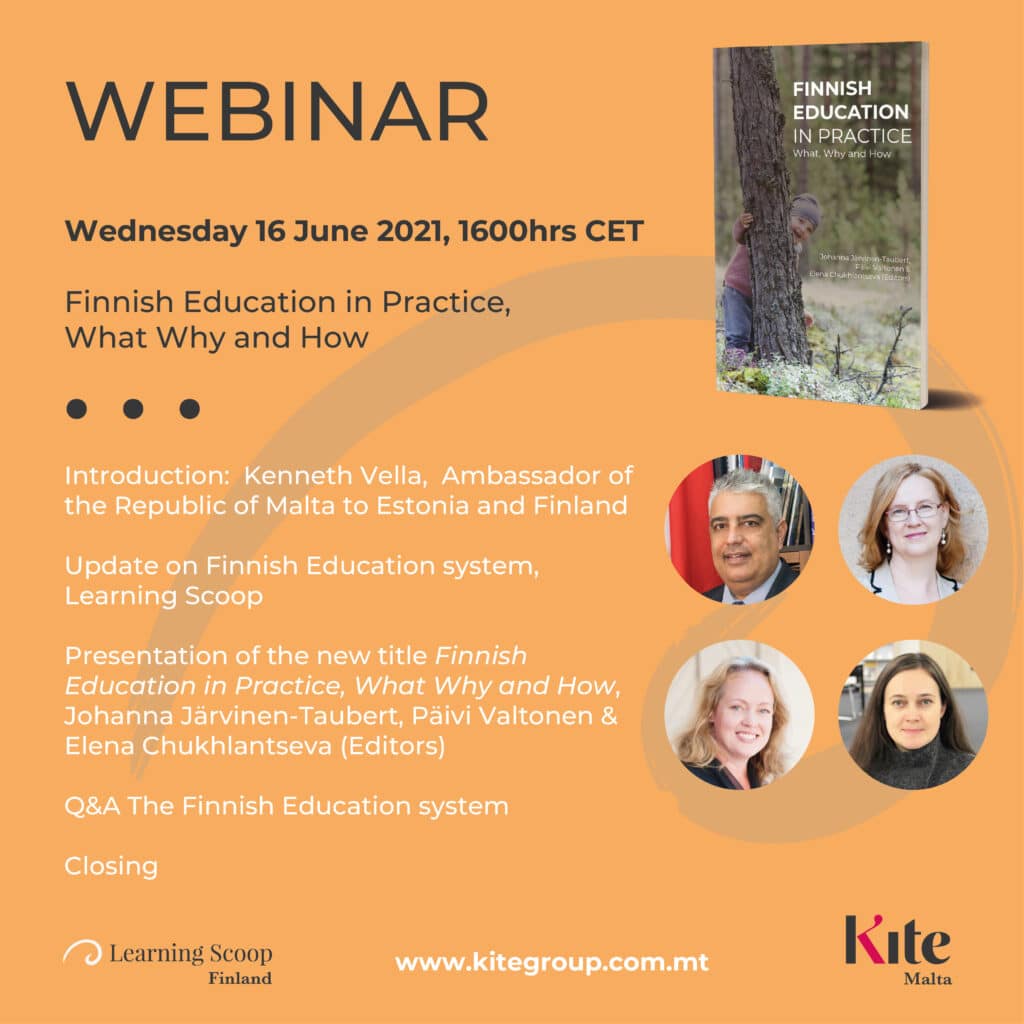Personally, I have been collaborating with Finnish entities for a number of years and through the ongoing collaboration with Learning Scoop Finland and other Finnish entities we have facilitated the visits to Finnish schools for hundreds of educators from various countries. All educators who had the opportunity to take part in this enriching experience always felt the need to learn more about the Finnish system of education and pedagogy, about the success of Finnish students in international examinations, the new national curriculum of Finland and the innovations in this Nordic country in the field of education. What is Finnish education in practice?
It was for this reason that in the past months our Finnish colleagues strived to publish the first edition of Finnish Education in Practice: What Why and How.
I strongly believe that such a publication should be an essential reference resource for all policy makers, teachers and senior leaders as it gives a detailed insight about this country and its educational progression during the past decade.
In this publication, there is a strong reference and discussion about certain characteristics which make the Finnish educational system original and unique. There is also a strong mentioning of the two basic principles which are constantly emphasized by Finnish educational policy makers and educators – the promotion of the principle of collaboration instead of competition and the need for students to learn principles which will eventually make use of them in their life and in the outside world, life skills.
Also in recent years, Finland introduced the concept of phenomenon-based learning. The introduction of this style of learning was also made possible because Finland has highly educated, skilled and motivated teachers. The teaching profession is respected and at all school levels, teachers are highly qualified and committed. For the teaching courses, the Finnish universities can select among the most motivated and talented applicants.
I strongly believe that Finnish Education in Practice: What, Why and How compliments other publications on Finnish educational theory and pedagogy which were researched and published also internationally during the past decade. Finally, a big well done goes to Johanna Järvinen-Taubert, Päivi Valtonen and Elena Chukhlantseva editors of this book, who, together with other Finnish educational specialists and teachers are sharing their expertise and good practices through such an inspiring and well researched publication.
Dr Kenneth Vella
Head of Mater Boni Consilii St Joseph School Paola, Malta and Ambassador of the Republic of Malta to Estonia and Finland.
What makes Finnish education unique? Join the webinar on June 16th – sign up here!
Get your own copy of this brand new book!


